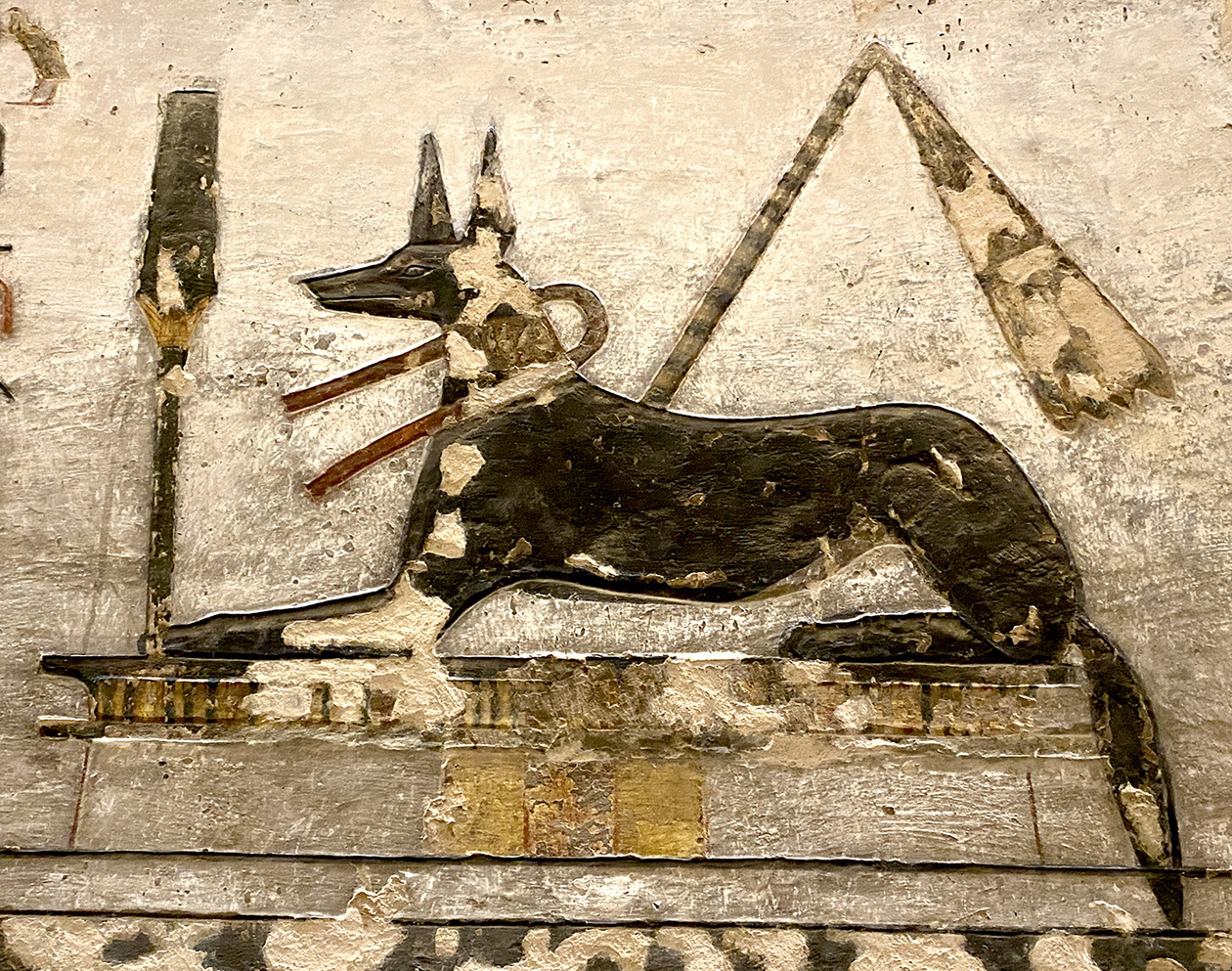Difference between revisions of "Template:Occult.live:Today's featured article"
Occultwiki (talk | contribs) |
Occultwiki (talk | contribs) |
||
| (11 intermediate revisions by the same user not shown) | |||
| Line 1: | Line 1: | ||
[[File: | [[File:Anubis Rameses III.jpg|250px|left]] | ||
'''[[Anubis]]''' is the god of funerary rites, protector of graves, and guide to the underworld, in [[Egyptian religion|ancient Egyptian religion]], usually depicted as a canine or a man with a canine head. | |||
Like many ancient Egyptian deities, Anubis assumed different roles in various contexts. Depicted as a protector of graves as early as the First Dynasty (c. 3100 – c. 2890 BC), Anubis was also an embalmer. By the Middle Kingdom (c. 2055–1650 BC) he was replaced by [[Osiris]] in his role as lord of the underworld. One of his prominent roles was as a god who ushered souls into the afterlife. He attended the weighing scale during the "Weighing of the Heart," in which it was determined whether a soul would be allowed to enter the realm of the dead. | |||
Anubis is one of the most frequently depicted and mentioned gods in the Egyptian pantheon, however, no relevant myth involved him. | |||
'''([[ | '''([[Anubis|Full Article...]])''' | ||
Latest revision as of 21:36, 13 May 2024
Anubis is the god of funerary rites, protector of graves, and guide to the underworld, in ancient Egyptian religion, usually depicted as a canine or a man with a canine head.
Like many ancient Egyptian deities, Anubis assumed different roles in various contexts. Depicted as a protector of graves as early as the First Dynasty (c. 3100 – c. 2890 BC), Anubis was also an embalmer. By the Middle Kingdom (c. 2055–1650 BC) he was replaced by Osiris in his role as lord of the underworld. One of his prominent roles was as a god who ushered souls into the afterlife. He attended the weighing scale during the "Weighing of the Heart," in which it was determined whether a soul would be allowed to enter the realm of the dead.
Anubis is one of the most frequently depicted and mentioned gods in the Egyptian pantheon, however, no relevant myth involved him.
